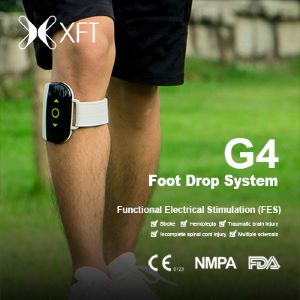Health Services Research
The Reliability and Validity of the Arabic Version of the Telerehabilitation Usability Questionnaire
Thursday, November 2, 2023
9:30 AM - 9:36 AM
Location: Station 12
- KS
Khalid Shebli
Graduate Student
Taif University
Taif, Saudi Arabia
Poster Presenter(s)
Research Objectives: this study aimed to translate, and cross‑culturally adapt the Telerehabilitation Usability Questionnaire (TUQ) into Arabic. In addition, to measure the validity and reliability of the translated TUQ questionnaire.
Design: This is a prospective cross-sectional survey using a descriptive research design.
Setting: This study involves Saudi Arabia's (Hospitals and primary health centers of the Ministry of Health, private hospitals and rehabilitation centers, and universities hospitals) (all these hospitals or centers must-have rehabilitation clinics).
Participants: A total of 270 participants completed the TUQ-Arabic. Of these participants, 118 were female (43.7%) and 152 were male (56.3%).
Interventions: The study was designed with individuals who have used telerehabilitation to cover different contexts of Evaluation, (usefulness, ease of use, interface quality, interaction quality, reliability, satisfaction, and future use).
Main Outcome Measures: The effectiveness of telerehabilitation services in Saudi Arabia.
Results: Our results found that the internal consistency of the TUQ-Arabic subscales was excellent (Cronbach's alpha > 0.90; ranged from 0.902–0.940). Further, the internal consistency of the TUQ-Arabic total score was excellent (Cronbach's alpha = 0.98). Additionally, the test re-test reliability of the TUQ-Arabic subscales was good to excellent. Also, the test re-test reliability of the TUQ-Arabic total score was excellent.
Conclusions: A translation and cross-cultural adaptation of the original TUQ was performed into Arabic. The study demonstrates an overall accepted statistical internal consistency compared with the original TUQ, which makes it a reliable tool to assess patients’ perceptions after using a telerehabilitation service. The findings suggest that the participants in the study perceived the TR services as useful, easy to use and learn, with a high-quality interface and interaction, as well as reliable, leading to high satisfaction and the questionnaire can be used to evaluate the usability of remote medical rehabilitation services in Saudi Arabia and possibly in other Arabic-speaking countries. Further work is needed to examine the regional differences, health status, computer proficiency, age, and gender of the study sample to form the basis for valid and reliable measurements.
Author(s) Disclosures: No conflicts of interest to disclose
Design: This is a prospective cross-sectional survey using a descriptive research design.
Setting: This study involves Saudi Arabia's (Hospitals and primary health centers of the Ministry of Health, private hospitals and rehabilitation centers, and universities hospitals) (all these hospitals or centers must-have rehabilitation clinics).
Participants: A total of 270 participants completed the TUQ-Arabic. Of these participants, 118 were female (43.7%) and 152 were male (56.3%).
Interventions: The study was designed with individuals who have used telerehabilitation to cover different contexts of Evaluation, (usefulness, ease of use, interface quality, interaction quality, reliability, satisfaction, and future use).
Main Outcome Measures: The effectiveness of telerehabilitation services in Saudi Arabia.
Results: Our results found that the internal consistency of the TUQ-Arabic subscales was excellent (Cronbach's alpha > 0.90; ranged from 0.902–0.940). Further, the internal consistency of the TUQ-Arabic total score was excellent (Cronbach's alpha = 0.98). Additionally, the test re-test reliability of the TUQ-Arabic subscales was good to excellent. Also, the test re-test reliability of the TUQ-Arabic total score was excellent.
Conclusions: A translation and cross-cultural adaptation of the original TUQ was performed into Arabic. The study demonstrates an overall accepted statistical internal consistency compared with the original TUQ, which makes it a reliable tool to assess patients’ perceptions after using a telerehabilitation service. The findings suggest that the participants in the study perceived the TR services as useful, easy to use and learn, with a high-quality interface and interaction, as well as reliable, leading to high satisfaction and the questionnaire can be used to evaluate the usability of remote medical rehabilitation services in Saudi Arabia and possibly in other Arabic-speaking countries. Further work is needed to examine the regional differences, health status, computer proficiency, age, and gender of the study sample to form the basis for valid and reliable measurements.
Author(s) Disclosures: No conflicts of interest to disclose

.jpg)
